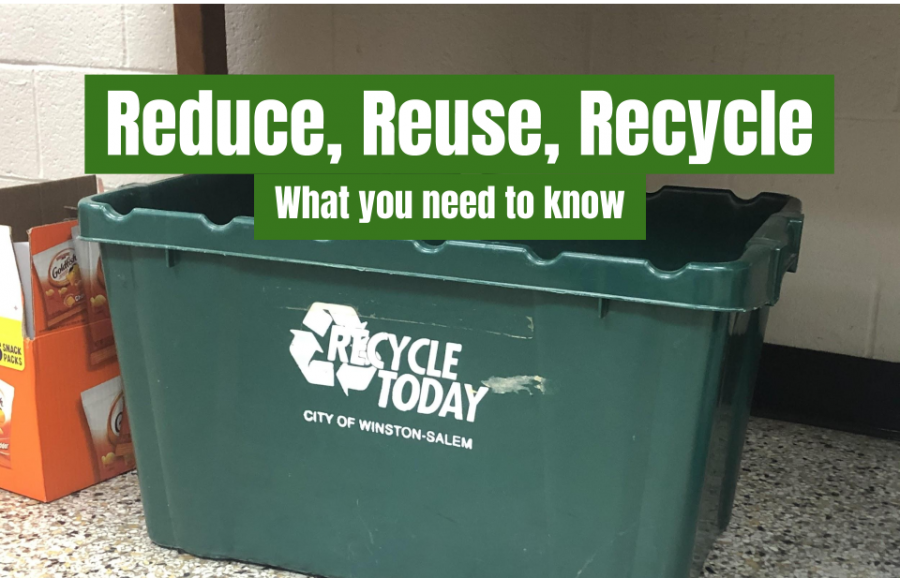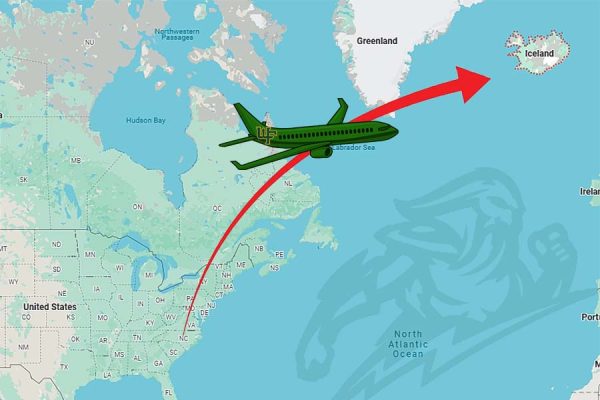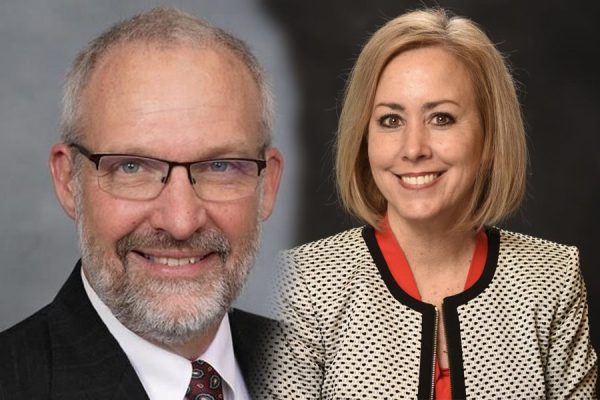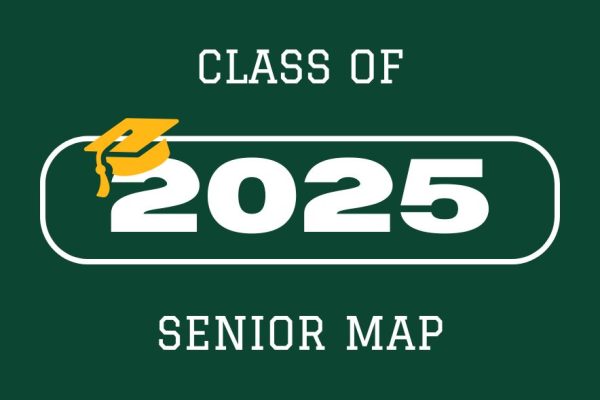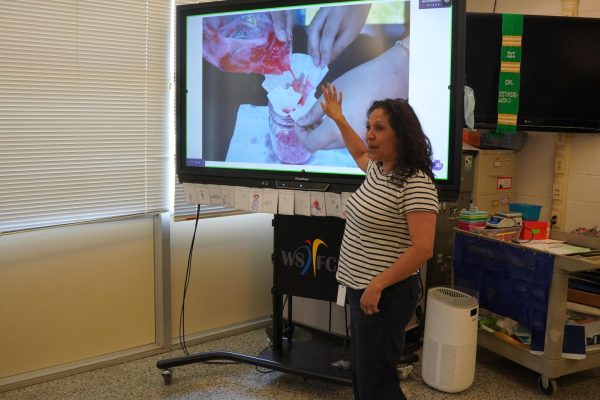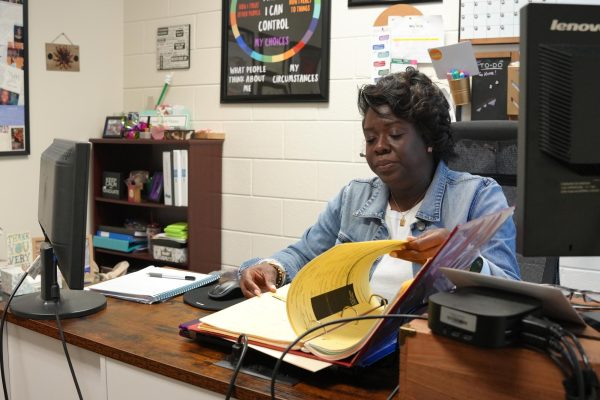Reduce, Reuse, Recycle: What you need to know
Recycling bins are available across West’s campus. Find out what you can recycle to help save our environment!
Everyone knows that recycling is important, but most people don’t really know what they can recycle. The overflowing recycling bins in each classroom serves as a testament to the lack of real education surrounding recycling.
Most people know the basics of what can be recycled: bottles, cans, cardboard, paper and plastics. The problem is when everything that falls into one of these groups is sent to be recycled, recycling becomes a tax burden. One benefit of recycling is that it makes waste management as a whole less expensive, but when non-recyclables are mixed in it becomes costly. Having to employ people to sort through it as well as the increased transportation costs for what is sorted out leaves recycling more expensive to the point where eventually recycling will not only not be profitable, it will be costly.
When people recycle, they assume they are helping the environment, but if they don’t employ correct recycling methods, they create more trash than there was to begin with. Nothing contaminated with food can be recycled, but let’s say someone recycled a ketchup bottle. If that bottle hasn’t been properly cleaned, there is a risk that all of the recyclables stored with it are also contaminated, and contaminated items are treated like garbage. In order to reduce waste that goes to recycling plants, you need to rinse out any bottles or cans that will be recycled. It is also important that you dry them, any wet paper or cardboard cannot be recycled. While single-use plastic bags should be avoided, if they are used, make sure not to recycle them, as they get stuck in conveyor belts and make the process much less efficient.
In Winston-Salem green, brown and clear glass bottles can be recycled as can plastic jugs and bottles; for all of these, it is important not to recycle the caps. Cardboard can also be recycled, as long as it’s flattened, along with chipboard, which composes things like cereal boxes and paper towel cores. Winston-Salem Waste Management will accept types 1-7 for recycling, which makes up the majority of goods. Plastic types 1-7 refers to the chemical components different plastics are composed of, with some like plastic 6, which composes things like rulers, being hard to recycle.
It is important to recycle, but unless it is done correctly it can cause harm. You can protect the environment, just do it right.
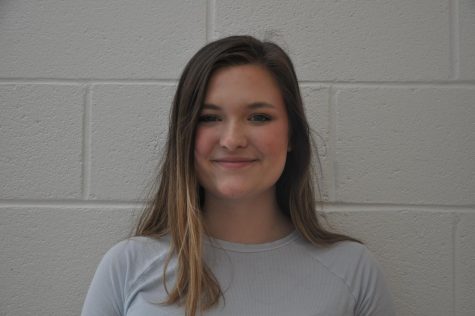
Averie King is a senior Features editor for the Zephyr. This is her third year in staff, having previously written for news. King is also President of...
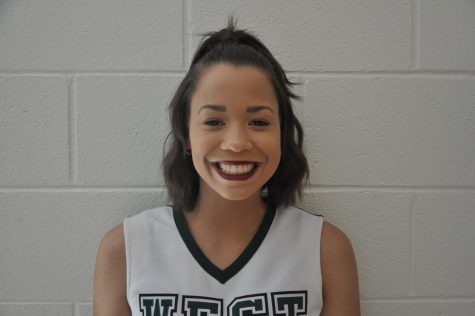
Lexy Hairston, a senior, has attended West Forsyth for two years since her transfer from Virginia. She has written for the Zephyr for two years now and...



